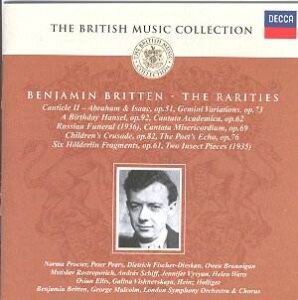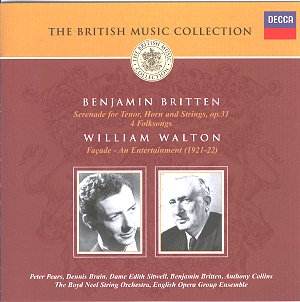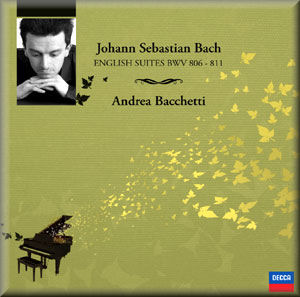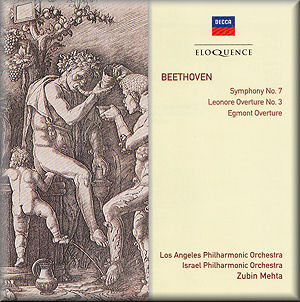Benjamin Britten – The Rarities
 There’s no denying that Benjamin Britten (1913-1976) is nest in the pantheon of great composers in the 20th century, particularly celebrated for his operatic and choral repertoire. However, the compilation “The Rarities” under Decca 468 811-2, serves up an intriguing anthology of rarely heard works that range across the span of Britten’s illustrious career.
There’s no denying that Benjamin Britten (1913-1976) is nest in the pantheon of great composers in the 20th century, particularly celebrated for his operatic and choral repertoire. However, the compilation “The Rarities” under Decca 468 811-2, serves up an intriguing anthology of rarely heard works that range across the span of Britten’s illustrious career.
One of the key highlights of the double CD set is “Canticle II: Abraham and Isaac” Op. 51. Dating from 1952, the work runs deep with religiosity, impressively conveyed through the expressive prowess of Peter Pears and Norma Procter. Blending the tenor and contralto voices in sublime symmetry, this work is a testament to Britten’s ability to elicit powerful emotion through understated musical complexity.
The intriguingly titled “Gemini Variations” Op.72 (1965), intended for four musicians, adds notable variety to the collection. Featuring the commendable performances of oboist Heinz Holliger and pianist András Schiff, this multilayered piece showcases Britten’s innovative exploration of melody and texture. The contribution of the Philip Jones Brass Ensemble in “Russian Funeral” (1936) explores Western musical modernism with dexterity, bringing raw power and intensity to this sonic landscape.
The collection also includes commendable performances by soprano Galina Vishnevskaya in “The Poet’s Echo” Op.76, and the Wandsworth School Boys’ Choir in “Children’s Crusade” Op.82. These performances, under Britten’s own direction, are imbued with a kind of authenticity and insight that only the composer himself could offer.
The intense choral work “Cantata Academica” Op.62 and the haunting “Cantata Misericordium” Op.69 also grace this compilation with their presence. Both pieces underline the composer’s expert manipulation of harmonies and his profound ability to link text with music in a seemingly seamless strand of narrative emotion.
The recordings encompass more than three decades, from 1957 to 1991, providing a timeline of Britten’s evolving style and texture. This anthology is especially valuable for Britten aficionados and for those keen on exploring the edges of his vast musical landscape. With exemplary performances and judicious selections, “Benjamin Britten: The Rarities” provides a rewarding exploration of this distinguished composer’s lesser-known works. This Decca compilation warrants commendation for its contributions to the documentation of Britten’s legacy.



